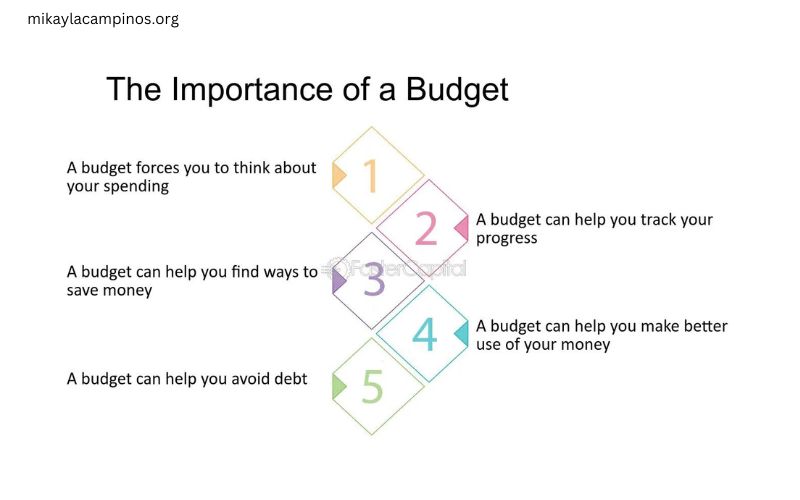By consciously budgeting for entertainment, you acknowledge its value and prioritize your mental and emotional needs. Whether it’s attending a concert, visiting a museum, or indulging in a hobby, these activities provide a much-needed respite from the demands of work, household responsibilities, and other obligations.
Moreover, budgeting for entertainment encourages mindful spending and prevents impulsive splurges that could strain your financial resources. It allows you to make informed decisions about how you allocate your disposable income, ensuring that you can enjoy your chosen leisure pursuits without compromising your financial stability.
The benefits of setting aside money for entertainment
Dedicating a portion of your budget to entertainment offers numerous benefits that extend beyond mere amusement. Here are some compelling reasons to embrace this practice:
- Stress Relief: Engaging in enjoyable activities can serve as an effective stress-relief mechanism. Whether it’s immersing yourself in a captivating book, losing yourself in a gripping movie, or exploring a new hiking trail, these experiences provide a much-needed break from the pressures of daily life, allowing you to recharge and rejuvenate.
- Mental Stimulation: Entertainment can challenge your mind and stimulate intellectual growth. Attending a thought-provoking play, exploring a museum exhibit, or participating in a trivia night can expand your knowledge, spark curiosity, and foster personal development.
- Social Connections: Many forms of entertainment involve social interactions, which can strengthen existing relationships and forge new connections. Sharing experiences with friends, family, or like-minded individuals can create lasting memories and foster a sense of community.
- Self-Expression: Engaging in creative pursuits, such as painting, writing, or playing a musical instrument, can serve as a powerful form of self-expression. These activities allow you to explore your passions, unleash your creativity, and cultivate a sense of personal fulfillment.
By allocating funds for entertainment, you prioritize these benefits and invest in your overall well-being, personal growth, and quality of life.
How budgeting for entertainment can improve mental health
In today’s fast-paced world, where stress and burnout are all too common, the importance of prioritizing mental health cannot be overstated. Budgeting for entertainment plays a crucial role in maintaining a healthy mental state, offering numerous psychological benefits:
- Reduced Stress and Anxiety: Engaging in enjoyable leisure activities can help alleviate stress and anxiety by providing a temporary escape from the pressures of daily life. Whether it’s losing yourself in a captivating book, immersing yourself in a favorite video game, or simply taking a leisurely stroll in nature, these activities can help calm the mind and promote a sense of tranquility.
- Improved Mood and Emotional Well-being: Entertainment can serve as a powerful mood-booster, releasing endorphins and promoting feelings of happiness and contentment. Laughter, in particular, has been shown to have numerous mental health benefits, including reducing stress, boosting mood, and fostering social connections.
- Increased Creativity and Cognitive Stimulation: Engaging in mentally stimulating activities, such as puzzles, brain teasers, or learning a new skill, can exercise your cognitive abilities and promote neuroplasticity, which is the brain’s ability to adapt and form new neural connections.
- Enhanced Self-Esteem and Confidence: Pursuing hobbies, creative endeavors, or personal interests can foster a sense of accomplishment and boost self-esteem. As you develop new skills or achieve personal goals, your confidence and self-worth can increase, positively impacting your overall mental well-being.
By allocating funds for entertainment, you prioritize your mental health and create opportunities for rejuvenation, personal growth, and emotional fulfillment, ultimately contributing to a more balanced and satisfying life.
Finding a balance between saving and spending on entertainment
While budgeting for entertainment is essential, it’s equally important to strike a balance between saving and spending. Overspending on leisure activities can jeopardize your financial stability, while underspending may deprive you of much-needed relaxation and enjoyment. Here are some strategies to help you find the right equilibrium:
- Prioritize Your Interests: Identify your passions and hobbies, and allocate a larger portion of your entertainment budget towards activities that truly resonate with you. This way, you can maximize your enjoyment while minimizing unnecessary expenses.
- Explore Cost-Effective Options: Seek out budget-friendly alternatives for your desired entertainment. Consider attending free community events, visiting local parks or museums with discounted admission rates, or exploring hobbies that require minimal equipment or supplies.
- Implement a “Fun Fund”: Establish a dedicated “fun fund” within your budget, allocating a specific amount each month for entertainment purposes. This approach helps you maintain financial discipline while ensuring you have funds available for leisure activities.
- Leverage Discounts and Promotions: Stay informed about discounts, coupons, and promotional offers that can help you save on entertainment expenses. Consider purchasing annual passes or memberships for activities you enjoy frequently, as these can often provide significant savings over time.
- Prioritize Experiences Over Possessions: Instead of accumulating material possessions, focus on creating memorable experiences. Experiences tend to provide longer-lasting satisfaction and contribute to personal growth and self-development.
By finding the right balance between saving and spending on entertainment, you can enjoy the benefits of leisure activities while maintaining financial responsibility and long-term financial security.
Tips for budgeting for entertainment effectively
Budgeting for entertainment can be a challenging task, especially when balancing it with other financial obligations and goals. However, with careful planning and strategic approaches, you can effectively allocate funds for leisure activities without compromising your overall financial well-being. Here are some practical tips to help you budget for entertainment effectively:
- Identify Your Entertainment Preferences: Begin by assessing your interests and preferred leisure activities. This will help you prioritize and allocate funds accordingly, ensuring that your entertainment budget aligns with your personal preferences and lifestyle.
- Track Your Spending: Keep a detailed record of your entertainment expenses over a few months. This will provide valuable insights into your spending patterns and help you identify areas where you may be overspending or underspending.
- Set Realistic Goals: Establish realistic and achievable goals for your entertainment budget. Consider factors such as your income, fixed expenses, and long-term financial objectives. Avoid setting unrealistic expectations that may lead to frustration or financial strain.
- Explore Cost-Saving Strategies: Seek out cost-effective alternatives for your desired entertainment. Consider options like free community events, discounted memberships, or group discounts for activities you enjoy with friends or family.
- Prioritize and Compromise: Prioritize the entertainment activities that bring you the most joy and fulfillment. Be willing to compromise on less important or less fulfilling activities to allocate funds more effectively.
- Utilize Budgeting Tools and Apps: Leverage budgeting tools, apps, or software to streamline the process of tracking your expenses and managing your entertainment budget. Many of these tools offer features like category tracking, goal setting, and visualizations to help you stay on track.
- Review and Adjust Regularly: Regularly review and adjust your entertainment budget as needed. Life circumstances, priorities, and interests can change over time, so it’s essential to adapt your budget accordingly.
By following these tips, you can effectively budget for entertainment while maintaining financial discipline and ensuring that your leisure activities contribute positively to your overall well-being and quality of life.
The role of entertainment in personal well-being
Entertainment plays a pivotal role in promoting personal well-being, extending far beyond mere amusement or leisure. Engaging in enjoyable activities can have a profound impact on various aspects of your life, contributing to a more balanced and fulfilling existence. Here’s how entertainment can enhance your personal well-being:
- Stress Relief and Relaxation: In our fast-paced and demanding world, entertainment serves as a crucial outlet for stress relief and relaxation. Whether it’s immersing yourself in a captivating book, losing yourself in a favorite movie, or indulging in a beloved hobby, these activities provide a much-needed respite from the pressures of daily life, allowing you to recharge and rejuvenate.
- Emotional Well-being: Entertainment can have a powerful influence on your emotional state. Engaging in activities that bring you joy, laughter, and happiness can boost your mood, alleviate anxiety and depression, and promote a more positive outlook on life.
- Cognitive Stimulation: Certain forms of entertainment, such as puzzles, brain teasers, or mentally challenging games, can exercise your cognitive abilities and promote mental sharpness. These activities can help improve focus, problem-solving skills, and overall cognitive function, potentially reducing the risk of age-related cognitive decline.
- Creative Expression: Creative pursuits, such as painting, writing, or playing a musical instrument, can serve as a powerful form of self-expression. These activities allow you to explore your passions, unleash your creativity, and cultivate a sense of personal fulfillment, which can positively impact your overall well-being.
- Social Connections: Many forms of entertainment involve social interactions, which can strengthen existing relationships and forge new connections. Sharing experiences with friends, family, or like-minded individuals can create lasting memories, foster a sense of community, and promote emotional support and belonging.
- Personal Growth and Development: Certain entertainment activities, such as attending lectures, workshops, or educational events, can contribute to your personal growth and development. These experiences can expand your knowledge, challenge your perspectives, and inspire you to explore new interests or pursue personal goals.
By recognizing the vital role of entertainment in personal well-being, you can prioritize leisure activities and allocate resources accordingly, ensuring that you nurture your physical, emotional, cognitive, and social needs for a well-rounded and fulfilling life.
How budgeting for entertainment can enhance relationships
Entertainment is not merely a solitary pursuit; it can also play a significant role in strengthening relationships and fostering meaningful connections. By budgeting for entertainment, you create opportunities to share experiences, bond with loved ones, and cultivate lasting memories. Here’s how budgeting for entertainment can enhance your relationships:
- Quality Time and Shared Experiences: Engaging in leisure activities together allows you to spend quality time with your friends, family, or significant other. Whether it’s attending a concert, exploring a new hiking trail, or trying a new restaurant, these shared experiences create opportunities for meaningful conversations, laughter, and memories that strengthen your bonds.
- Common Interests and Hobbies: Budgeting for entertainment can facilitate the pursuit of common interests and hobbies with your loved ones. Participating in activities you both enjoy, such as sports, arts and crafts, or outdoor adventures, can deepen your connection and provide a sense of shared purpose and enjoyment.
- Relationship Rejuvenation: Incorporating entertainment into your relationships can help reignite the spark and add excitement to your connections. Trying new experiences together, whether it’s taking a dance class, attending a comedy show, or exploring a new city, can break the monotony of routine and inject a sense of adventure and novelty into your relationships.
- Stress Relief and Bonding: Entertainment can serve as a valuable outlet for stress relief and relaxation, not only for individuals but also for relationships. Engaging in enjoyable activities together can help alleviate the pressures of daily life, promote laughter and positive emotions, and create opportunities for open communication and emotional bonding.
- Memorable Traditions: Budgeting for entertainment can facilitate the creation of memorable traditions within your relationships. Whether it’s an annual trip, a monthly game night, or a special celebration, these traditions become cherished rituals that strengthen your connections and create lasting memories.
By prioritizing entertainment in your budget, you invest in the quality of your relationships, fostering deeper connections, shared experiences, and a sense of togetherness that can enrich your life and the lives of those around you.
Budget-friendly entertainment options
Enjoying leisure activities doesn’t have to break the bank. There are numerous budget-friendly entertainment options available that can provide enjoyment and relaxation without straining your finances. Here are some cost-effective ideas to consider:
- Outdoor Adventures: Embrace the great outdoors by exploring local parks, hiking trails, or beaches. These activities are often free or require minimal costs, such as transportation or entry fees. Pack a picnic lunch and make it a day trip with friends or family.
- Community Events: Many cities and towns offer free or low-cost community events, such as outdoor concerts, movie screenings, festivals, or art exhibitions. Stay informed about local happenings and take advantage of these opportunities for entertainment and cultural enrichment.
- Library Resources: Your local library is a treasure trove of entertainment options. Borrow books, movies, music, and even attend free workshops, lectures, or book club meetings. Libraries often offer discounted or free passes to museums and other attractions as well.
- Streaming Services: Subscription-based streaming services like Netflix, Hulu, or Amazon Prime can provide access to a vast library of movies, TV shows, and documentaries for a monthly fee, offering entertainment at your fingertips.
- Game Nights: Organize game nights with friends or family members. Board games, card games, or video game tournaments can provide hours of entertainment and socialization without breaking the bank.
- DIY Projects and Hobbies: Explore your creative side by taking up DIY projects or hobbies like painting, knitting, woodworking, or gardening. These activities can be both enjoyable and budget-friendly, with many resources available online or at local craft stores.
- Free or Discounted Classes: Check for free or discounted classes offered by community centers, colleges, or local businesses. These can range from cooking classes to dance lessons, providing opportunities for learning, socializing, and entertainment.
- Potluck Gatherings: Host potluck gatherings with friends or neighbors, where everyone contributes a dish or beverage. These events can be a fun and cost-effective way to socialize, share meals, and enjoy each other’s company.
By exploring budget-friendly entertainment options, you can prioritize leisure activities without compromising your financial goals, allowing you to strike a balance between enjoyment and responsible spending.
The impact of not budgeting for entertainment
While the importance of budgeting for entertainment is often overlooked, failing to allocate funds for leisure activities can have significant consequences on your overall well-being and quality of life. Here are some potential impacts of not budgeting for entertainment:
- Increased Stress and Burnout: Without outlets for relaxation and enjoyment, you may find yourself overwhelmed by the demands of work, household responsibilities, and other obligations. This can lead to heightened stress levels, burnout, and a diminished ability to cope with life’s challenges.
- Neglected Personal Growth: Entertainment can provide opportunities for intellectual stimulation, creative expression, and personal development. By neglecting this aspect of your life, you may miss out on chances for self-exploration, skill development, and the pursuit of new interests and passions.
- Strained Relationships: Shared leisure activities can strengthen bonds with friends, family, and loved ones. Without budgeting for entertainment, you may find it challenging to create quality time and shared experiences, potentially leading to strained or stagnant relationships.
- Decreased Productivity: While it may seem counterintuitive, neglecting leisure activities can actually hinder your productivity. Without opportunities for rejuvenation and mental breaks, you may experience decreased focus, motivation, and overall work performance.
- Financial Strain: Failing to budget for entertainment can lead to impulsive spending or splurging on leisure activities without proper planning. This can result in financial strain, debt accumulation, and potential setbacks in achieving your long-term financial goals.
- Emotional and Mental Health Challenges: Entertainment can play a crucial role in promoting emotional well-being, reducing stress and anxiety, and boosting overall mental health. Without these outlets, you may be more susceptible to negative emotions, depression, and a diminished sense of life satisfaction.
- Lack of Work-Life Balance: Maintaining a healthy work-life balance is essential for overall well-being. Without budgeting for entertainment and leisure activities, you may find yourself consumed by work and responsibilities, leading to burnout and a lack of personal fulfillment.
By recognizing the potential impacts of not budgeting for entertainment, you can prioritize this aspect of your life and create a balanced approach that nurtures your physical, emotional, and mental well-being while also maintaining financial stability.
Conclusion
In conclusion, budgeting for entertainment is not a luxury but a necessity for a well-rounded and fulfilling life. By allocating funds for leisure activities, you acknowledge the importance of self-care, personal growth, and mental well-being. Entertainment serves as a vital outlet for stress relief, emotional rejuvenation, and intellectual stimulation, contributing to a balanced and satisfying existence.
Furthermore, budgeting for entertainment can enhance relationships by creating opportunities for shared experiences, fostering meaningful connections, and strengthening bonds with loved ones. It also encourages mindful spending and prevents impulsive splurges that coul d strain your financial resources.
Prioritizing entertainment in your budget allows you to make informed decisions about how you allocate your disposable income, ensuring that you can enjoy your chosen leisure pursuits without compromising your financial stability. It encourages a balanced approach to life, where work and responsibilities are complemented by rejuvenating activities that nurture your physical, emotional, and mental well-being.
By embracing the value of entertainment and incorporating it into your budgeting practices, you invest in your overall quality of life. Whether it’s indulging in a beloved hobby, exploring new cultural experiences, or simply unwinding with a good book, these moments of leisure can provide a sense of joy, fulfillment, and personal growth that transcends mere amusement.
Ultimately, budgeting for entertainment is a conscious choice to prioritize your happiness and well-being. It acknowledges that a truly fulfilling life is not solely defined by work or material possessions but by the experiences, connections, and personal enrichment that leisure activities can bring. So, embrace the power of entertainment, allocate resources accordingly, and embark on a journey of self-care, personal growth, and lasting memories that will enrich your life in countless ways.




commander ozempic pharmacie grasse or pharmacie moins chere
http://www.studivz.net/Link/Dereferer/?https://pharmaconfiance.com/ pharmacie direct
[url=http://www.tifosy.de/url?q=https://pharmaconfiance.com]spray magnesium pieds[/url] pharmacie internationale en ligne and [url=https://www.mobetterfood.com/profile/uyxumhbjde/]effet ketoprofene[/url] guigoz pharmacie